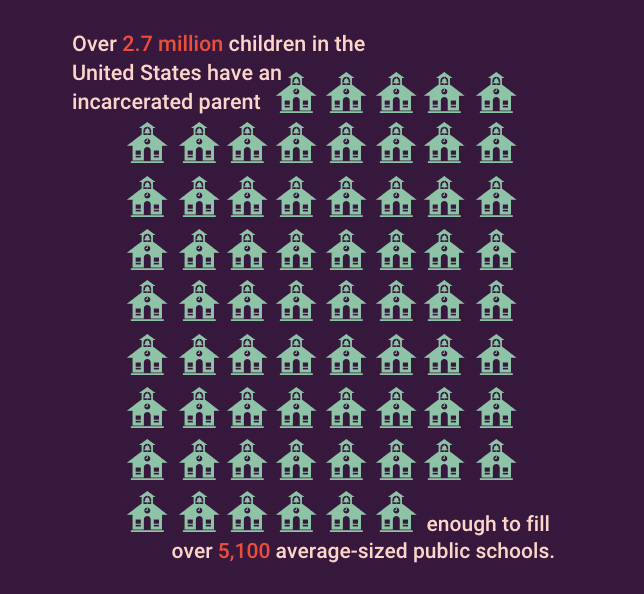Where Can Families Turn for Help During a Loved One’s Incarceration?

The struggles that come with incarceration are not limited to the individual on the inside. When a family member or loved one is incarcerated, it can be challenging to deal with their absence and the burdens that come with it. Friends and family members may struggle financially, emotionally, or socially. Loved ones may even feel guilty for voicing their struggles while their partner or parent is serving a sentence.
Understanding Your Emotions
It’s normal to feel a mix of emotions, and you are not alone. There are a few terms that may help you make sense of what you are feeling.
- Ambiguous grief occurs when there is loss without death. This type of grief is often overlooked, because the loved one is still alive, though physically absent.
- Disenfranchised grief occurs when the loss is not acknowledged or supported. When others don’t recognize what you’re feeling as significant, it can create feelings of social isolation and prolong the pain.
- Secondary prisonization refers to how incarceration affects the family even when they are not the ones physically incarcerated. Families may experience fear and stigma around their loved ones’ incarceration and have trouble navigating the rules and procedures of the prison system.
Having a loved one in the criminal justice system is a stressful and difficult experience. Fortunately, there are resources geared to help you every step of the way.
Communication is Linked to Reduced Recidivism
One challenge you may face during a loved one’s incarceration is communication and connection. It can be hard to go from regular contact to scheduled and limited phone calls. Regular communication may help you deal with the emotional toll that incarceration has on families, keep you connected to your loved one, and communication is also linked to reduced recidivism rates.
Keeping your loved one updated on milestones and everyday life keeps them involved and connected. Oftentimes, people feel guilty sharing their milestones or struggles with the individual who is incarcerated, but it is important to involve them and keep as much of a sense of normalcy as possible. Hiding achievements or conflicts will only create distance. By keeping communication open, both you and your loved one will feel less alone.
Flikshop was created to help families stay connected during a sentence. Depending on the institution’s rules, families can use this service to send low-cost photos to their loved ones. Marucs Bullock founded Flikshop after his release and credits his moms’ daily letters and photos for giving him the hope and courage to carry on.
Another service that helps you connect with your loved ones is Pigeonly. This service includes talk time, postcards, and letters to help you affordably stay in touch.
You’re Not Alone: Safe Spaces for Healing and Support
With a loved one’s incarceration, you may feel shame or stigma that causes you to alienate yourself from your regular social circles. While your friends and colleagues may not understand what you are going through, it is important to seek support during this time.
Support groups with individuals who are going through similar situations are a great tool. The Prison Families Alliance (PFA) is an organization that seeks to improve the lives of families and children of loved ones in the criminal justice system. Support resources include monthly online meetings for teens and in-person meetings in New York, Ohio, Maryland, Indiana, Arizona, Nebraska, and Nevada. As with most personal struggles, hearing from others who know firsthand what you are going through can really help!
For Every Child Who Needs a Little Extra Love and Support
Children of incarcerated parents are sometimes referred to as the “hidden victims”. They are more at risk of mental health problems and substance use disorders compared to children without incarcerated family members. Visitation and regular communication, such as letters or phone calls, are important during this time and can improve familial relationships and the likelihood of remaining together after their incarceration.

Children losing a parent or family member to incarceration may deal with confusion, shame, and grief. Rainbows for All Children is an organization that provides resources for children dealing with difficult situations, including the incarceration of a parent. Use their support group locator to find a peer-support community nearby.
For younger children, Sesame Workshop offers specific tips for caregivers and for helping children understand the changes that are occurring.
For college-aged students, there are a few organizations that give scholarships specifically to children with incarcerated parents. Seeking higher education while dealing with the stressors of an incarcerated parent can be daunting, but these scholarship opportunities can help lessen the financial burden.
Tools to Ease the Financial Burden
Something that many people are not prepared for when a loved one is incarcerated is the financial impact, especially if the incarcerated individual was a financial provider. Families may not be prepared for the additional expenses incurred related to legal fees and visitation. A 2015 report found that families incurred about $13,000 of debt from court-related fines and fees. Our budgeting worksheet can help you reevaluate your finances as a first step.
You may qualify for Temporary Assistance for Needy Families (TANF), a federally-funded program that helps families pay for food, housing, and childcare. Eligibility varies by state, so check with your local program to determine eligibility and apply for benefits.
Support for Every Step of the Journey
It can be helpful to hear from others who have had a similar experience—to see that you are not alone and for advice. The Life After Prison podcast shares what it’s like to have a partner in prison in an episode that has resonated with many individuals with loved ones in the justice system.
Additionally, there are a variety of local organizations all around the country with the goal of helping those with incarcerated loved ones. The Prison Fellowship has compiled a list of resources here, which you can browse by state.
Don’t forget to focus on yourself. Amidst the challenges of a loved one’s incarceration, it is important to still care for yourself and prioritize your mental health.


